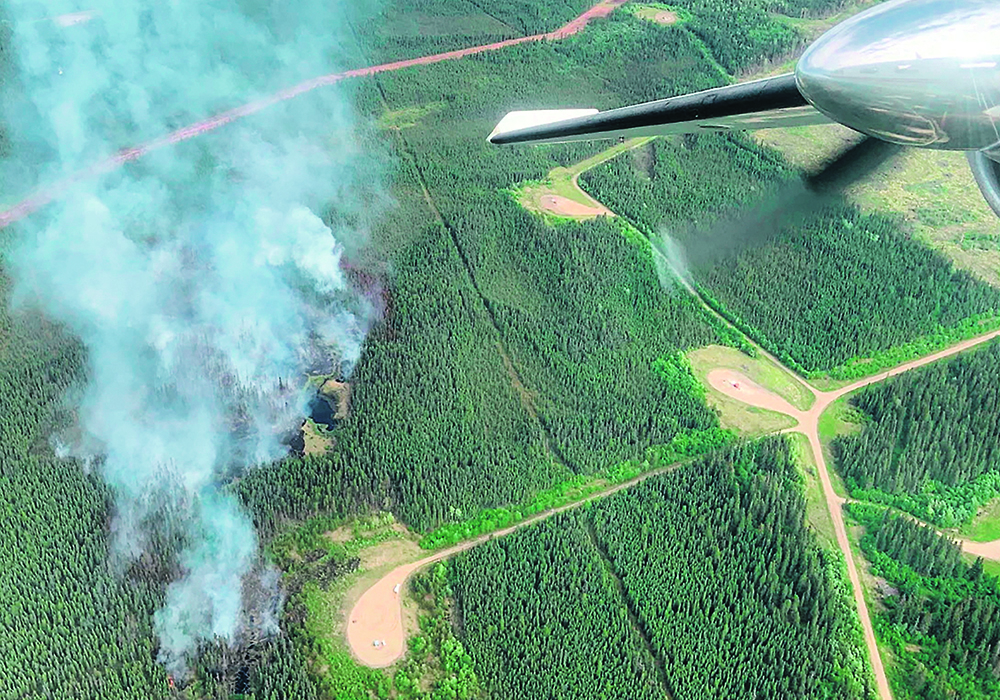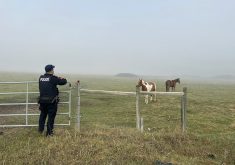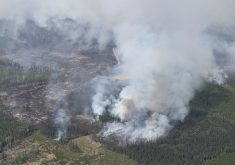Seeding progresses in affected areas despite fires, but the threat is not over as new blazes continue to appear
Aid and insurance packages for the agricultural sector are being offered to producers impacted by the May fires that swept through Alberta’s Peace Country.
While some individual producers have been hit hard, the overall outlook for the northwestern part of the province isn’t so bad, according to the Peace Country regional director for Alberta Canola.
“Everybody is done seeding and most guys are working on their first pass,” said Christi Friesen, Region 1 director with Alberta Canola, based in the Peace region. “This year was a drier year so those that weren’t directly affected by the fires were able to get in by the end of April, first part of May and get their seeding done.”
Read Also

Using artificial intelligence in agriculture starts with the right data
Good data is critical as the agriculture sector increasingly adopts new AI technology to drive efficiency, sustainability and trust across all levels of the value chain.
The Alberta crop report shows a slight increase in percentage of major crops seeded by the first part of June over the 10-year average for canola, barley, wheat and oats as well as a large increase in emergence over that same time period for the Peace region.
“By the May long weekend, guys were wrapping up so everything is progressing as it should at the moment anyway,” said Friesen.
Excessively dry soil moisture leading into the seeding season in the Peace has also given way to better conditions.
“At the May long weekend, we got anywhere from two to two-and-a-half inches of rain. And it ranged anywhere from an inch-and-a-half to three inches in places throughout the Peace,” she said. “There was substantial rainfall that did help but also, we’ve got the winds again, so all the forest fires are starting to pick up again and new fires are being discovered. We’re kind of caught in a little cycle right now.”
Friesen said there have been some reports of farmers ignoring evacuation orders issued because of the fires.
“Most of the farmers in my area (of Brownvale), they shut down their drills and were actually out helping to haul water and fight forest fires,” she said.
Tim Carson, chief executive officer of the Alberta Association of Agricultural Societies, said his organization is working with Telus to make a grant available for producers displaced by the fires.
“They can go to our website and it’s a very non-extensive nomination process to nominate somebody who has been displaced and who has incurred some significant challenges,” said Carson.
The association is also working with Farm Credit Canada to provide financial grants for agricultural societies that have hosted evacuated livestock at their facilities.
The association provided a listing, early on in the emergency, of its members able to host evacuated livestock.
Alberta’s Agriculture Financial Services Corp. is also extending recommended seeding dates for clients impacted by the wildfires or evacuations between five days and two weeks, depending on the crop.
AFSC is also working with its clients to provide coverage through several products.
Paul McLauchlin, president of the Rural Municipalities of Alberta, said once the dust settles on the 2023 provincial election, he hopes to raise the issue of this year’s wildfires and the response to them.
McLauchlin said a lot of responsibility in dealing with wildfire emergency response is put on rural municipalities, including issues surrounding evacuation of livestock.
“This early fire creates an interesting conversation because a lot of those folks were in calving season,” he said.
“You can’t transport pregnant heifers or heifers with calves. That’s a disastrous situation.”
Improving communication channels will also be a topic of conversation McLauchlin said RMA is hoping to have with the re-elected government after talking to rural leaders.
After a slight pause in fires, Alberta is once again facing an upsurge in evacuation orders with the Town of Edson and communities in Yellowhead County west of Edmonton told earlier this week to leave their homes, businesses and agricultural operations.















